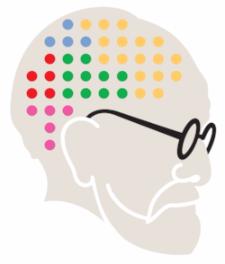Why and How Consciousness Arises
- April 7, 2018
10:00 am - 12:00 pm
The Arnold Pfeffer Center for Neuropsychoanalysis
Why and How Consciousness Arises
Saturday, April 7, 2018
10:00 am
Presenter: Mark Solms, Ph.D.
Discussant: Maggie Zellner, Ph.D.
Dr. Solms will discuss recent developments in neuropsychoanalysis that illuminate the “hard problem” of consciousness – how and why the subjective experience of consciousness arises in conjunction with the functions of the brain. Solms’ model integrates insights from affective neuroscience, the “conscious id” hypothesis, and Friston’s model of predictive coding, free energy and “surprise,” with implications for clinical work.
2 CME/CE credits offered.
Mark Solms, Ph.D. is best known for his discovery of the forebrain mechanisms of dreaming, and his pioneering use of psychoanalytic methods and theories in contemporary neuroscience. Born in Lüderitz in 1961, he was educated at Pretoria Boys’ School and the University of the Witwatersrand, Johannesburg. He moved to London in 1988, where he worked at the Royal London Hospital (Honorary Lecturer in Neurosurgery) while he trained at the Institute of Psychoanalysis. He returned to South Africa in 2002, where he now holds a Professorship in Neuropsychology at the University of Cape Town. He is president of the South African Psychoanalytical Association, member of the British Psychoanalytical Society, and Honorary Member of the New York Psychoanalytic Society. Honours include the George Sarton Medal for contributions to the history and philosophy of science (Rijksuniversiteit Gent, 1996), the International Psychiatrist award for contributions to American psychiatry (American Psychiatric Association, 2001) and the Sigourney Prize for contributions to psychoanalysis (2012). He is chair of the Research Committee of the International Psychoanalytical Association. He has published more than 300 papers in both neuroscientific and psychoanalytic journals, and five books, including The Neuropsychology of Dreams (1997), Clinical Studies in Neuropsychoanalysis (2000) and The Brain and the Inner World (2002). His last book was a bestseller and was translated into nine languages. He is the editor of the Revised Standard Edition of the Complete Psychological Works of Sigmund Freud (24 vols) and the forthcoming Complete Neuroscientific Works of Sigmund Freud (4 vols).
Maggie Zellner, Ph.D., L.P. is a psychoanalyst, behavioral neuroscientist, and neuropsychoanalytic educator. She is the Executive Director of the Neuropsychoanalysis Foundation in New York, and co-editor of the journal Neuropsychoanalysis. She has taught introductory neuroscience to the psychoanalytically-minded since 2003, and is in private practice in New York City.
Educational Objectives: Upon completion of this activity, participants will be able to:
- Describe the role of the Von Hemholtz School of Physiology on the development of Freud’s psychological theories;
- Assess the neuroscientist Karl Friston’s updating and refining of the Helmholtzian principles of Freudian metapsychology, which combined with the role of affect in the brain, explain how and why consciousness occurs.
Psychologists
New York Psychoanalytic Society & Institute is approved by the American Psychological Association (APA) to sponsor continuing education programs for psychologists. New York Psychoanalytic Society & Institute maintains responsibility for this program and its content.
Social Workers
New York Psychoanalytic Society & Institute SW CPE is recognized by the New York State Education Department’s State Board for Social Work as an approved provider of continuing education for licensed social workers #0317.
Physicians
This activity has been planned and implemented in accordance with the Essential Areas and policies of the Accreditation Council for Continuing Medical Education through the joint providership of the American Psychoanalytic Association and the New York Psychoanalytic Society and Institute. The American Psychoanalytic Association is accredited by the ACCME to provide continuing medical education for physicians. The American Psychoanalytic Association designates this Live Activity for a maximum of (2) AMA PRA Category 1 Credit(s)™. Physicians should claim only the credit commensurate with the extent of their participation in the activity.
Important disclosure information for all learners
None of the planners and presenters of this CME program have any relevant financial relationships to disclose.
Persons with disabilities
The building is wheelchair accessible and has an elevator. Please notify the registrar in advance if you require accommodations.
Venue: NYPSI's Marianne & Nicholas Young Auditorium
Description:
Second Floor, 247 East 82nd Street | New York, NY 10028


